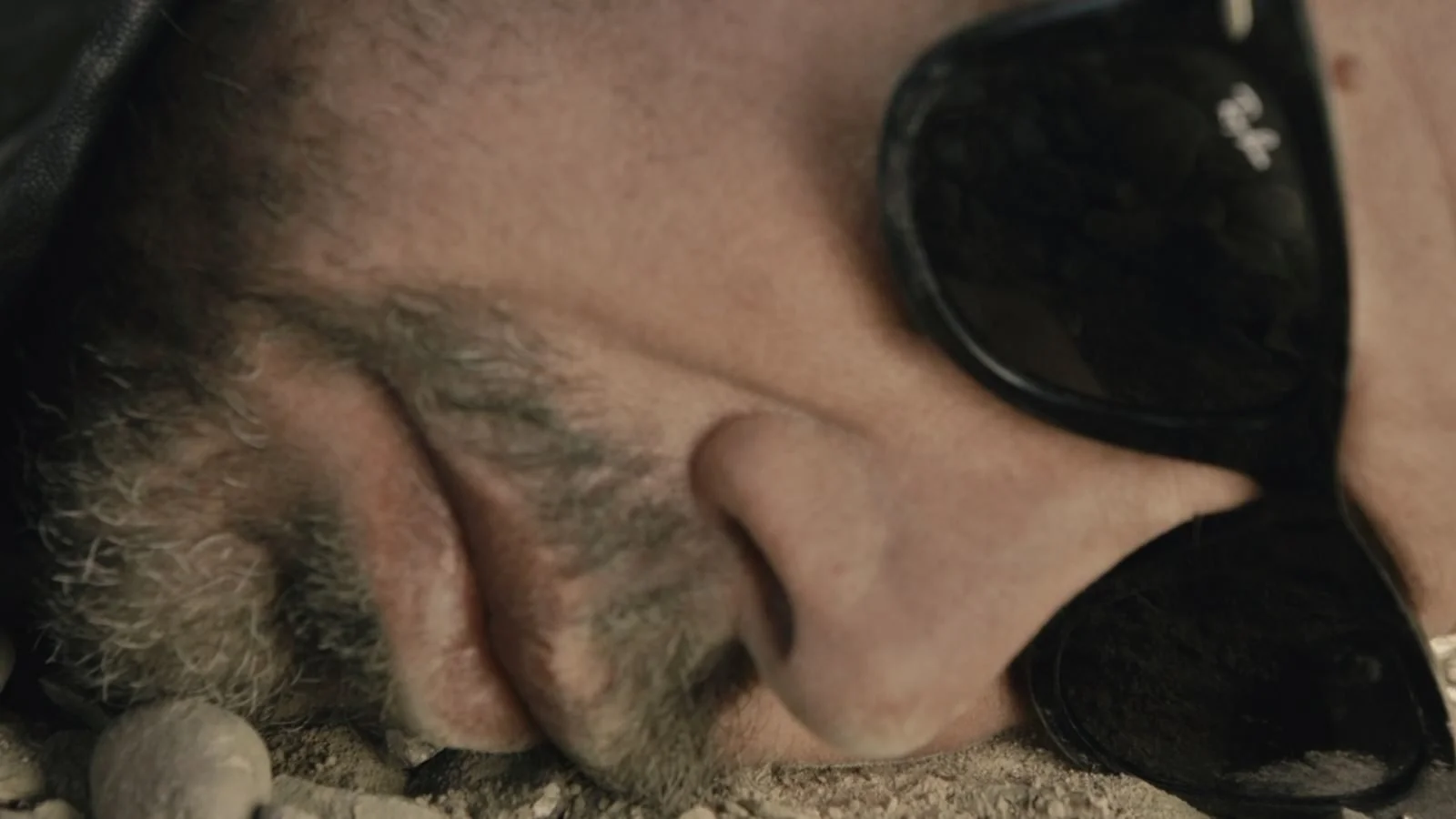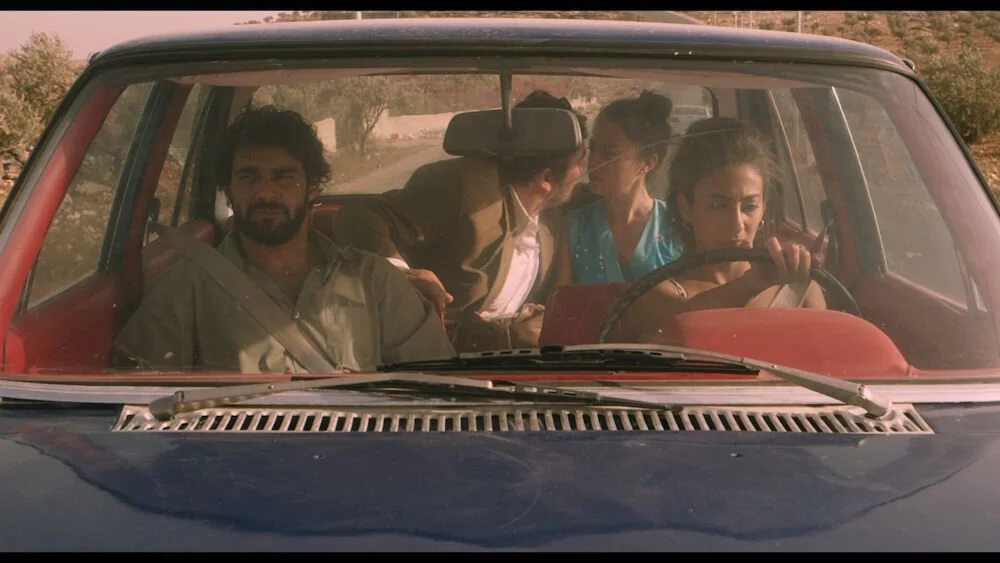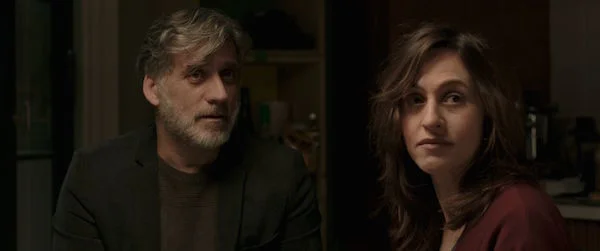The upcoming screening will take place on December 3rd, and it will be followed by a Q&A with the director, moderated by director Sophie Fiennes.
Read MoreSaleh Bakri in a still from Farah Nabulsi's 'The Teacher'
The power of nuances: Farah Nabulsi's 'The Teacher' UK release review
At the core of the Oscar-nominated filmmaker’s first feature is a clear understanding of the power of the perpetually perpetrated injustice on the Palestinian people.
Read MorePeace is a co-production: Amos Gitai, Irene Jacob and Micha Lescot talk 'Why War' in Venice
In his latest film, a crucial masterpiece titled ‘Why War’, Amos Gitai reminds us of an exchange of letters between Sigmund Freud, the father of modern psychoanalysis, and Albert Einstein, the scientific genius. If only we’d listen to these brilliant men.
Read More'Why War' may be Amos Gitai's most important film to date and will screen at this year's Venice Film Festival
For a man whose personal mission has been to “build bridges through cinema,” as he told La Repubblica newspaper in an interview just published this week, his latest film may prove the most important peace-making link yet.
Read MoreRe-evaluating the power of cinema: Amos Gitai's 'Shikun' at Berlinale
If you’d asked me a year ago did I believe cinema could change the world, I would have answered you with an enthusiastic “yes!” Now? Read on to find out…
Read MoreAmos Gitai, center, on the set of ‘Shikun’
Amos Gitai’s ‘Shikun’ promises to offer a much-needed exercise in peace
The latest film by the prolific filmmaker, theater director, architect and artist has just been announced as a Berlinale Special at the upcoming Berlin Film Festival.
Read More'Ahed's Knee' -- Review
Let’s get this out of the way: everything about Nadav Lapid's latest film is spellbinding.
Read MoreAli Suliman plays Mustafa, a father separated from his family by a wall, in Ameen Nayfeh’s ‘200 Meters’
Love in the time of occupation: Ameen Nayfeh's stunning '200 Meters' starring Ali Suliman in Venice
A father, his family, a wall. It’s a theme, an image we think of often these days, particularly when speaking of certain American policies and our current US President. But where is another part of the world where such a policy has been tried and tested, and of course, failed miserably on a human scale? Palestine, or Israel if you wish to call it with its post-1948 name. A land belonging to many and claimed by some.
In Ameen Nayfeh’s quiet masterpiece ‘200 Meters’, which premiered as part of the Giornate degli Autori lineup in Venice this year, Palestinian superstar Ali Suliman plays Mustafa, a loving husband and doting father.
Read MoreShe put a spell on me: Najwa Najjar's bewitching 'Between Heaven and Earth'
One of my favorite films in Berlin this year is not in Competition. Actually it’s not even in any of the sidebars. You’ll find Najwa Najjar’s stunning, heartwarming latest feature at the Berlinale’s European Film Market, with a screening on the 22nd of February, at 9.30 in the Simon Bolivar Saal.
Read MorePhoto courtesy of Hurdle Film, LLC
Michael Rowley's 'Hurdle': The revolution will be jumped over, tumbled under, flown above and rolled around
The Palestinian condition can be summed up in one word: Naqba — the Arabic word for “disaster”. While the Israelis celebrate their Independence Day each May, the Palestinian population mourns the loss of their land, liberty and peace on exactly the same date. It’s one of the most tragic contradictions of our times.
But the Palestinian people are nothing if not resilient. Through their ordeal they’ve made beautiful cinema, see Elia Suleiman, created mind blowing art like Nabil Anani and succeeded in sports. I could think of several examples of each. I mean, Palestinian singer Mohammed Assaf became the second ever Arab Idol in 2014 despite the fact that he wasn’t even allowed into Egypt, where the competition was filmed. While walls are built to keep them in, Palestinian figure out more and better ways to overcome those obstacles and become better, stronger and more successful.
Read More“A collector of contradictions”: Amos Gitai takes us on a voyage of thinking with ‘A Tramway in Jerusalem’
“And despite the clamors and the violence, we tried to preserve in our hearts the memory of a happy sea, of a remembered hill, the smile of a beloved face.” — Albert Camus from ‘Resistance, Rebellion and Death: Essays’
As I watched Amos Gitai’s latest ‘A Tramway in Jerusalem’ with the usual anticipation I dedicate to all the works of the visionary Israeli filmmaker, I looked for the funny. After all, Gitai himself, in his director’s notes called Tramway “an optimistic and ironic metaphor of the divided city of Jerusalem”. In the synopsis of the film, the word “comedy” is used yet when I watched ‘A Tramway in Jerusalem’, more than once, I cried. Long, perfectly needed tears. The film world premiered out of competition at this year’s Venice International Film Festival.
Read MorePHOTO BY GIORA BEJACH
Lior Ashkenazi and Sarah Adler in still from Samuel Maoz’s ‘Foxtrot’
Talking ‘Foxtrot’ with Lior Ashkenazi, Sarah Adler and Samuel Maoz in Venice
In a great film, there is always a moment when things change — that instance when the viewer is caught off guard, and left with an indelible feeling to take home. I consider it the cinematic equivalent of that famous Maya Angelou quote “I’ve learned that people will forget what you said, people will forget what you did, but people will never forget how you made them feel.” Personally speaking, a truly successful movie is one where that moment remains with me, hours later, casting a spell over my heart and soul.
Samuel Maoz’s ‘Foxtrot’ is that film. More than twelve hours after watching it at the Venice Film Festival where it is featured in the main Competition section, I’m still only barely able to process it emotionally. Even though the filmmaker created an artful, visually stunning, sonically powerful, perfectly acted, intellectually stimulating and utterly entertaining film — I can just remember how it made me feel. I doubt I will ever forget actually.
Read More










